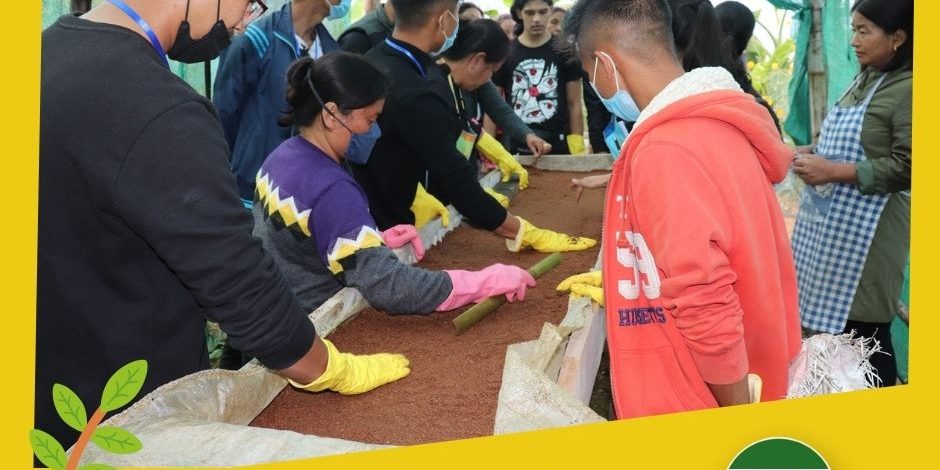NEN farm school (NFS) started on 28th October 2021 at Chizami with 19 participants from 3 states (Nagaland, Meghalaya and Assam) with the theme Bridging the Farm-To-Plate Gap. The farm school is designed to engage and reconnect young people to local food and farming systems and to revisit the diversity of food and its Cultural, Social, Spiritual, Health and Political significance. It aims at creating awareness amongst young people to help them better understand our food system and to be responsible consumers and citizens; and to know our right to healthy food that is produced through ecologically sound and sustainable methods and our right to own our food and agriculture system. 
A presentation on understanding local and sustainable systems for food, nutrition and livelihood by Akole Tsuhah, NEN Nagaland State Coordinator, on the first day was a good way to introduce the concept of farm school to participants. She highlighted the multiple sources of our food, that comes from forest, kitchen garden, water bodies, jhum and terrace fields. She underlined the importance of knowing how our foods are produced, what we consume and what we are putting back into the soil.
Seno Tsuhah, Honorary Member, NEN in her session on indigenous knowledge and practices in relation to food politics, emphasised on the importance of local food and farming systems in an age where we are becoming increasingly dependent on food that is controlled by a few corporations. She highlighted that indigenous knowledge is a living knowledge, passed down to us by our fore-parents. it is an open source, providing information for everyday life, sustainable ecosystem management with ethical and practical implications for social relations and relations between humans and nature. She underlined that the journey towards a food secure future starts with each one of us and to achieve this, it is critical to use a system that is ecological and sustainable.

Other highlights included the importance of understanding soil presented by Adikhwe-u Wezah, Community knowledge holder from Chizami. She emphasised the importance of maintaining soil health as a foundation of our food production. She demonstrated types of soil and the varieties of crops grown on each soil type, and shared about plants that repair degraded soils or increases soil fertility. She also highlighted that in the face of climate change, those crops that were usually planted in March and April now don’t germinate well in some soil types and therefore they are changing the sowing cycle to August.
Participants also had hands on experience on vermin-culture composting and soil-less nursery management. Other activities conducted during farm school were, Agro biodiversity walk & foraging uncultivated and wild edibles, backyard poultry for food and livelihood, food processing using local ingredients, storytelling with community elders at a Mapumo, and a visit to the community seed bank.








